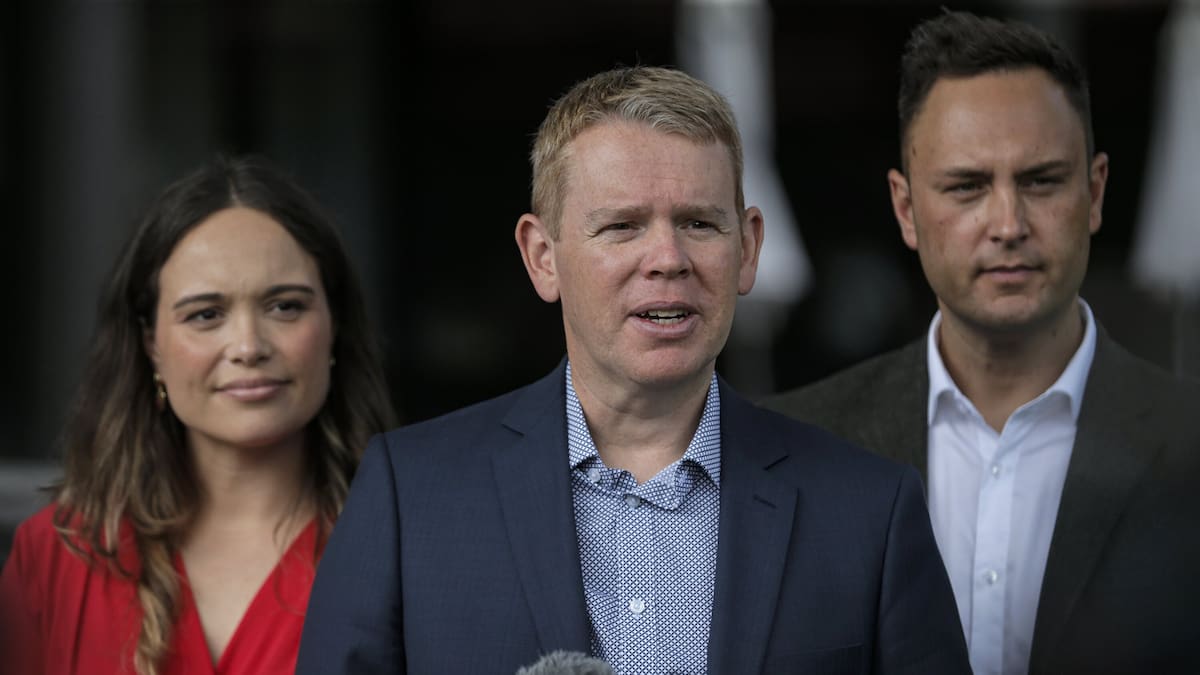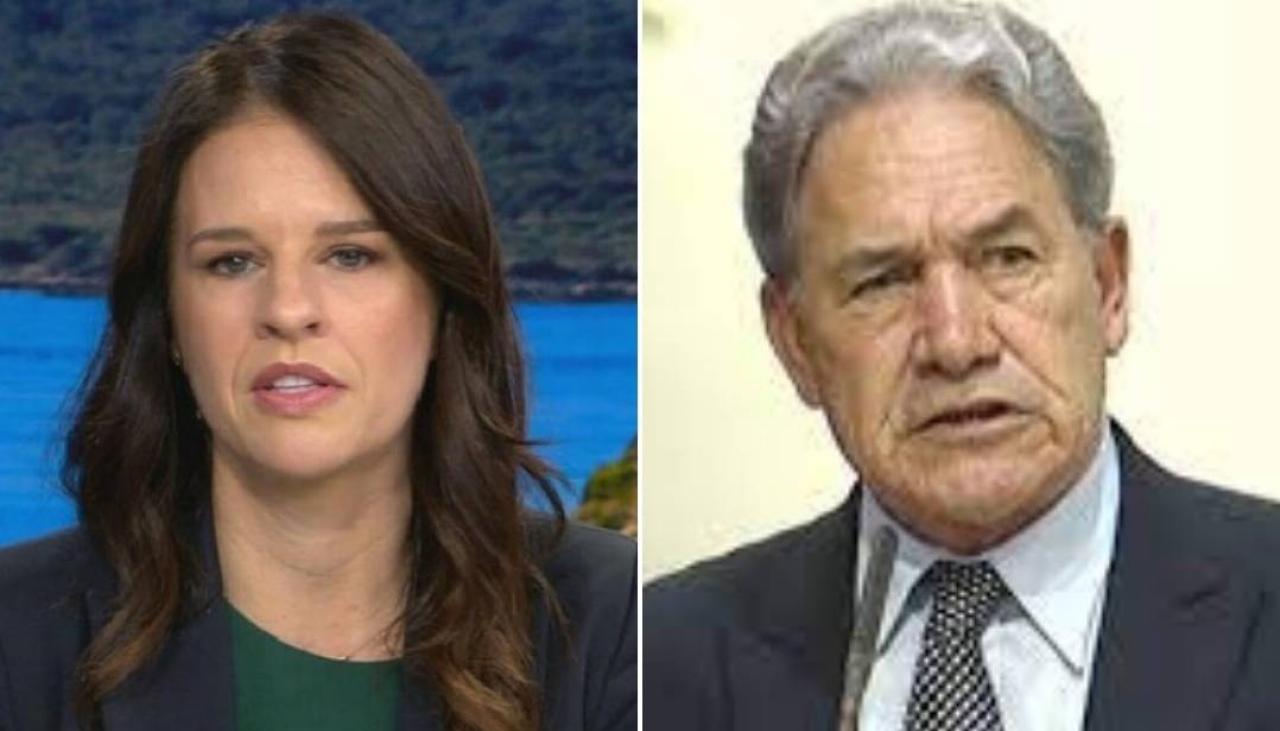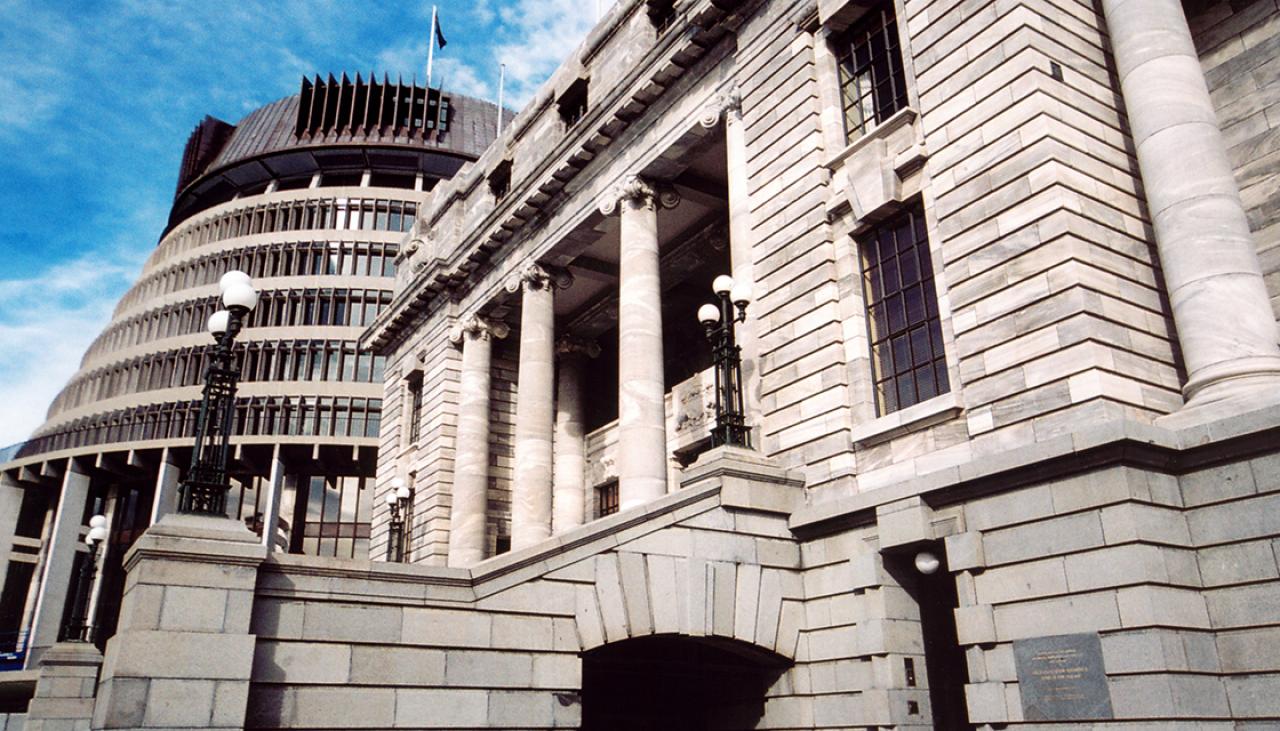That's normal with classified information.It happened in 2021. Why is this coming out now 3 years later???
Not impressed. Can’t have foreign countries knowing more about what’s really happening in the country than the actual voters.
Navigation
Install the app
How to install the app on iOS
Follow along with the video below to see how to install our site as a web app on your home screen.

Note: this_feature_currently_requires_accessing_site_using_safari
More options
You are using an out of date browser. It may not display this or other websites correctly.
You should upgrade or use an alternative browser.
You should upgrade or use an alternative browser.
Politics NZ Politics
- Thread starter wizard of Tauranga
- Start date
Yup. 6-12mths to figure out wtf is happening. 12mnths to write reports and file memos. 12mnths to get approval from 500 agencies for release.That's normal with classified information.
If you're lucky!Yup. 6-12mths to figure out wtf is happening. 12mnths to write reports and file memos. 12mnths to get approval from 500 agencies for release.
Ohh and add a few months burying the counterfactual report written by (someone like shush) me, which contradicts the official analysis.
oohh shit what? No that would never (3x) happen.....
oohh shit what? No that would never (3x) happen.....
More like someone wants it released to score political points or influence opinion.If you're lucky!
- Thread starter
- #7,926
That was my thoughts.More like someone wants it released to score political points or influence opinion.
Labour for whatever reason didn’t want it public and now National has chosen to open a can of worms.
Probably pressure from other countries? 5 eyes?
No doubt, I can see NZ pushing to be involved with the 2nd pillar of AUKUS.That was my thoughts.
Labour for whatever reason didn’t want it public and now National has chosen to open a can of worms.
Probably pressure from other countries? 5 eyes?
Political Roundup: Is Chris Hipkins to be trusted on tax reform? - Bryce Edwards
Former Finance Minister Grant Robertson and former Prime Minister Chris Hipkins have been conveying how unhappy they are with the tax system. Last week in his valedictory speech, Robertson called for the introduction of a wealth or capital gains tax. And this week Hipkins gave his State of the Nation speech calling for a new public debate on reforming taxation to be more progressive.Satirists might point out that if those two politicians ever get hold of the politicians who have been running the country for the last six years, then they are obviously going to have some pretty heated words with them. It really is beyond parody that such senior members of the last Government are suddenly condemning the current tax system as grossly unfair only after they’re out of power.
Robertson and Hipkins blocked tax reform
Many on the political left are aghast that Robertson and Hipkins had six years, including three years with a historic majority, to push through any radical tax reform they wanted, but are only now talking radically. The fact that both politicians are seen as playing key parts in blocking progressive tax reform, rankles even more.For the most scathing reaction to Robertson’s sudden plea for tax reform, see Jack Tame’s “Robertson’s lament for New Zealand’s tax system rings hollow”. In this, Tame has no time for the justifications that the likes of Robertson and Dame Jacinda Ardern have made as to why they didn’t act on tax (“we wanted enduring reform that wouldn’t just be repealed by the next Government”), pointing out that their Government was hellbent on pushing through plenty of other radical reforms without any popular or bipartisan consensus (“Three Waters, RMA reforms, the restructure of Te Pūkenga, the Māori Health Authority, and Auckland Light Rail”) - so why were Labour so unwilling to do so on tax?
Tame explains that “ultimately they valued political capital over sticking to their convictions... The most galling thing for those who support tax reform is not that Labour didn’t do it, it’s that the party didn’t even really try”.
Similarly, Newstalk ZB’s Heather du Plessis-Allan has challenged Robertson’s supposed belief in a wealth tax, saying: “If he really believed the tax system needed to be fairer, he had his chance. He had the ear of Jacinda Ardern. He is one of her best friends. And he either couldn’t convince her or didn’t really try” - see: Grant Robertson is a great bloke, but he was a terrible Finance Minister.
‘Flippy Chippy Flop’
In coming out this week with yet another new position on tax reform, Hipkins has been characterised on social media as “Flippy Chippy Flop”. His various U-turns on tax don’t come across as authentic, but instead as opportunistic. This is a huge problem for Labour. Tax debates only continue to grow in importance, especially with the new Government promising their own tax reform.The problem for Labour is that to participate in building a progressive campaign for progressive change on tax, they will need to be led by someone with strong credibility on debating reform. So, does Hipkins have that credibility? Can he and Labour be trusted on tax?
To establish that, it’s worth looking beyond Robertson and Hipkin’s eloquent speechifying on tax reform to what the party has actually done in practice about tax in the last week.
1) Labour voted against its own policy on taking GST off food. Te Pati Māori put forward legislation this last week in Parliament, and Labour joined National in voting down a policy that was remarkably similar to what it recently built its election campaign around. Despite the GST-off-food policy being incredibly weak, Labour and its supporters asserted it was “better than nothing”. Yet even on this weak policy, Labour has flip-flopped again. Before the vote, Labour-aligned commentator Shane Te Pou warned: “If Labour votes against this bill, a lot of Labour supporters will be very unhappy and they will not forgive or forget.”
2) Labour has confirmed it would keep the new Government’s tax deductibility for landlords unless the tax cut proves to cause a big boom in housing prices. Housing spokesman Kieran McAnulty clarified this when speaking to property developers last week, being reported as committing to retain National’s $2.9b tax cut for landlords if it isn’t seen to cause another house price boom - see Rob Stock’s (paywalled) “Kieran McAnulty courts property developers”.
After changing their positions so dramatically on these two issues in the last week, Labour appears to be willing to continue to capitulate on tax. And if they are so quick to change their tax policies to court property developers, then how much confidence should the public have that they will stay staunch on other progressive tax policies in the future?
Will Labour voters get fooled again?
Labour’s ongoing track record is to campaign for tax reform, get into power based on their complaints about unfairness and inequality, but then to find reasons not to implement any real reform. Critics say it’s like Groundhog Day, with various Labour leaders and Prime Ministers going through the cycle of posing as tax reformers in Opposition and then delivering the status quo (with some tweaks). Helen Clark’s Labour-led Government did exactly this, followed by Ardern, and then Hipkins.The latter has recently been hostile to tax reform and last year tied his leadership to promises not to implement progressive new taxes. But as with Robertson, he’s raising eyebrows by now posing as a tax reformer.
Labour’s tax politicking routine of selling themselves to voters on the promise of tax reform but then capitulating after the election will only work if voters naively take Hipkins at face value. But some commentators think they should. For example, Max Rashbrooke argues today in The Spinoff that although Labour has a terrible track record on tax promises, “this time it might be different” and says that Labour under Hipkins can now be trusted on tax reform, because “the intent this time must be serious” - see: “Chris Hipkins might just be the one to make a wealth tax work for Labour”.
Rashbrooke’s argument is that there is just too much momentum and expectation within the Labour Party for Hipkins to be able to let down supporters: “By dangling the prospect of major reform and then taking it away, Hipkins has sparked serious discontent within Labour, and indeed the wider left. As one Labour MP told me last year: ‘We’ve uncorked something here that can’t be put back in the bottle.’ Hipkins knows all this history, and must be aware that to call once more for ‘a conversation’ on tax and then do nothing would surely spark more than just discontent.”
Similarly, Rashbrooke told RNZ: “I don’t think Hipkins would raise his head above the parapet if there was no intention to do anything because why would you get everybody’s hopes up again and dash them for a second time?” - see Anneke Smith’s “Public ‘ready to be convinced’ about capital gains tax - inequality expert”.
Labour’s ‘Wealth Tax Faction’ has pressured Hipkins to act
Although Rashbrooke’s optimism might seem overly heroic, it is indeed true that within Labour, activists and politicians are organising to make tax reform happen. There is a lot of discussion about the establishment of a “Wealth Tax Faction”, coalescing around MP David Parker and other progressive members of the caucus.A looming bitter internal war on tax within Labour threatens to topple Hipkins or at least make his party increasingly divided and unelectable. Hence Hipkins has had to quickly shift his positioning after seeing which way the wind is blowing.
Signs of the Wealth Tax Faction asserting itself in Labour were first reported by the Herald’s Thomas Coughlan in January, soon after the party’s Policy Council election was held, in which a number of the faction were elected: “CTU chief economist Craig Renney and Toby Moore, both former advisers to former Finance Minister Grant Robertson were elected to the council, as was former MP and minister Michael Wood, potentially signalling a comeback. Former Hamilton West candidate Georgie Dansey won a place, as did Labour member Jo Spratt.” See: Michael Wood among familiar faces to win Labour election, as party mulls tax discussion.
The Policy Council has become a crucial power base in the party, especially when Labour is in Opposition, and it’s become dominated by the Wealth Tax Faction, making life difficult for Hipkins.
This was explained recently by veteran journalist Richard Harman, writing in his Politik newsletter: “When it is in Government, Labour’s caucus tends to have a free hand in developing policy. But in Opposition, the party’s 14-person Policy Council is responsible for party policy, and the caucus may only differ from that with the approval of two-thirds of the council. In practice, in government, the council adopts a light-handed approach, but in Opposition, it is much more influential. Politik understands that a substantial majority of council members now favour a wealth tax, which they would probably want to see accompanied by a tax switch, such as a reduction in income tax or GST.” See (paywalled): “Labour’s policy gap”.
Hipkins is therefore having to dance to the tune of this Wealth Tax Faction to save his leadership. The Herald’s Audrey Young explains this week that Hipkins “still needs to earn the support of the disgruntled members who believe Hipkins weakened the party as PM”. See: The speech Chris Hipkins needed to give in a new era for Labour (paywalled). She points out: “It is in Hipkins’ interest to be closely associated with the work of the party’s policy council.”
Does Hipkins need to go?
Given the internal strife in Labour and the flip-flopping required, can Hipkins be taken seriously on tax reform? His recent statements on tax are at variance with all his time in government and even during the last few months, when he has repeatedly said that Labour didn’t do anything wrong in office but merely lost the election because there was a “mood for change”.For example, Hipkins told Tame last month that the one big mistake that Labour made was in running an election campaign in 2023 that failed to highlight his different personal character to that of Ardern - see 1News’ “Labour’s Chris Hipkins reveals one election regret”.
Then more recently in trying to explain why he’s now done a 180-degree turn on progressive taxes, Hipkins has given the rather glib answer of “that was then, this is now”. This won’t be very convincing to many. And in the party, there are plenty who say that Hipkins is only posturing about tax reform in order to retain his role, and that he’s still hostile to the idea of a genuine wealth or capital gains tax. Former Labour Beehive staffer Vernon Small, who used to work for Parker, wrote earlier this year that Hipkins and the Labour leadership view tax reform negatively “as a recurrent campaign nightmare” that should be avoided rather than “an opportunity to define itself, and fund its policy platform”. See: “Was that Labour’s worst week yet?”
Small explained that Hipkins’ true orientation to tax reform is made clear by his refusal to allow Parker anywhere near a portfolio relating to tax, such as the revenue and economic portfolios, pointing out that Hipkins has put the rather dry Deborah Russell in charge of tax. She is on record saying that wealth taxes are “largely unknown” and too complicated to explain.
The new Finance spokeswoman Barbara Edmonds also doesn’t appear to have any instincts for tax reform. Since replacing Robertson in the role, she has been at pains in numerous media interviews not to be painted as a tax reformer or to convey any suggestions that she favours a more progressive tax system.
In her Q+A interview with Tame, Edmonds even went as far as pointing to the Roman Empire’s Emperor Justinian, who she says proved the dangers of over-taxation. She told Tame: “When I was going through Law School, I was also doing some ancient history papers. And, basically, Emperor Justinian. It was the fall of the Roman Empire because, basically, they had to over-tax people to pay for the war... So, the lesson I learned from that was that if you over-tax people, well, in Justinian’s case, it broke down an empire.”
This is all relayed in a recent column by Chris Trotter, who points out that “none of this is true”, and in fact the emperor carried out “comprehensive reform of the Byzantine tax system... thereby increasing the flow of gold and silver to Constantinople”. See: “Misremembering Justinian’s taxes”.
Finally, it’s worth reading what left-wing commentator Gordon Campbell writes about today on Labour’s flip-flopping on tax - see: “On Labour’s fear of commitment”. Like others, Campbell is scathing about Labour’s continued weakness on putting forward any real progressive policies, lampooning the party’s timidity.
Campbell outlines how many years the capital gains tax (CGT) debate has been going on, before sarcastically saying “it seems that Chris Hipkins and his Labour Party team will need two more years of careful scrutiny before they might possibly, could perhaps, might conceivably be willing to adopt a CGT as official Labour policy, by around the time that election 2026 rolls around. We can hardly wait. As for implementing a wealth tax, or a land tax, or a windfall tax on bank profits... Even though Labour is allegedly a centre left party that regularly bangs on about its commitment to traditional Labour values... it will want a lot more time to think those things through before embracing any radical options, don’t you know. Can you imagine the Act Party asking for two years’ grace to think through its stance on a tax policy?”
• Dr Bryce Edwards is Political Analyst in Residence at Victoria University of Wellington. He is the director of the Democracy Project.

Political Roundup: Is Chris Hipkins to be trusted on tax reform?
OPINION: Labour's 'Wealth Tax Faction' has pressured Hipkins to act.

Prof Jonathan Boston: Zombie ideas suck the life from ghost policies
Comment: The role of powerful organised interests must surely loom large in the absence of policies like a capital gains tax, congestion charging or bans on housing development in high-risk locations.
And here's Wayne Brown ably supported by the Ratepayer Alliance, the stooge of the Taxpayers Union and whose campaign manager was Matthew Hooton, looking to further his privatisation goals - we're being attacked from central and local government by the neolibs

 newsroom.co.nz
newsroom.co.nz

Mayor's budget proposal ‘sugar-hit economics’ – mayor
Researchers say airport and port lease sales on the table at Auckland Council continue a “longstanding tradition” of using the promise of debt relief to promote privatisation.
Getting them to pay rates would be a big help and the presbyterians and catholics.And here's Wayne Brown ably supported by the Ratepayer Alliance, the stooge of the Taxpayers Union and whose campaign manager was Matthew Hooton, looking to further his privatisation goals - we're being attacked from central and local government by the neolibs

Mayor's budget proposal ‘sugar-hit economics’ – mayor
Researchers say airport and port lease sales on the table at Auckland Council continue a “longstanding tradition” of using the promise of debt relief to promote privatisation.newsroom.co.nz
Last edited:
Interesting Brown's call for GST on rates to be paid to Councils. Since Councils run at a loss, you'd think they'd be receiving GST refunds each year any way.Getting them to pay rates would be a big help and the presbyterians and catholics.
And, if they were given 100% of the GST invoiced from government, that would equate to a 15% increase in Council revenue PA. Bet that still wouldn't stop them increase the rates each year as they soon find ways to spend it.
Then there's always central government saying, that's fine, we'll give you the GST but it will come at the expense of the public transport subsidies we provide to you. Oh look, your subsidy has dropped by the same amount as the GST we just paid you.
Worse bit about the sale of the Auckland Airport shares are all the other old Councils sold their shares before they were amalgamated into Auckland Council... except Manukau City Council. Those shares belong to the ratepayers of South Auckland but I bet the money raised from the sale won't be going on badly needed infrastructure here like the Mangere drainage issues that flood every time there's more than a light shower.And here's Wayne Brown ably supported by the Ratepayer Alliance, the stooge of the Taxpayers Union and whose campaign manager was Matthew Hooton, looking to further his privatisation goals - we're being attacked from central and local government by the neolibs

Mayor's budget proposal ‘sugar-hit economics’ – mayor
Researchers say airport and port lease sales on the table at Auckland Council continue a “longstanding tradition” of using the promise of debt relief to promote privatisation.newsroom.co.nz
- Thread starter
- #7,934
Rates are becoming a rip off.Interesting Brown's call for GST on rates to be paid to Councils. Since Councils run at a loss, you'd think they'd be receiving GST refunds each year any way.
And, if they were given 100% of the GST invoiced from government, that would equate to a 15% increase in Council revenue PA. Bet that still wouldn't stop them increase the rates each year as they soon find ways to spend it.
Then there's always central government saying, that's fine, we'll give you the GST but it will come at the expense of the public transport subsidies we provide to you. Oh look, your subsidy has dropped by the same amount as the GST we just paid you.
They go up by well above inflation every single year but we get less services over time. Rubbish, inorganics, water, consenting houses, etc all used to be included in rates but are now user pays with no drop in rates.
Then there’s the regional council rip off which used to be included in the rates at about $30pa just a few years ago and is now seperate at $500 per year.

Stanford disagrees with Peters' claim Auckland Uni's special area for Māori and Pasifika students is segregation
She added those spaces have existed for decades.
Finding winstons rationale hard to follow. He likens co governance to apartheid, is he doing this in defence of Maori? He now mentions segregation because of lines stated for Maori and Pacifica people at this place. Is he doing this in their defence or defence of European people saying there’s preferential treatment for Maori and Pacifica people? Can’t imagine Maori would trust him to be in their corner if this is on their behalf?
Tragic
Contributor
Who cares about the sailing, bunch of knobs who get rich from taxpayer handouts and cry about it, fuck em.The real point is we will lose the event next year; we had the same fiasco around films and they have dried up; big concerts are avoiding us (Eden park resource consent), we ban oil unannounced and international business avoid us, etc.
Nobody wants the hassle of coming here and we’re developing a reputation as being anti anything. Coutts said after the Auckland fiasco that other countries go out of their way to make things happen whereas we find barriers.
We’re becoming a high quality rest home country where nothing happens because we make it so hard.
Never seen any credible data that the investment in sailing has a payback.
Clint Smith, former advisor to Jacinda Ardern and head of Victor Consulting/ Victor Strategy and Communications.... who will lose thousands if not millions of fees each year if the consulting budgets to MBIE and Waka Kotahi are cut as part of the cost cutting measures brought in by the new government. Interesting how Labour ministers in 2022 refused to allow questions under the OIA to be answered by MBIE and Waka Kotahi regarding the commercial relationships and money paid to Victor Consulting. I'm guessing Clint's not too happy about his revenue stream from government departments being cut.The tax fiasco/rip off that we can't afford as they steal money from the disabled, health, the police, roads, public transport etc etc
View attachment 6405
Clint Smith, former advisor to Jacinda Ardern and head of Victor Consulting/ Victor Strategy and Communications.... who will lose thousands if not millions of fees each year if the consulting budgets to MBIE and Waka Kotahi are cut as part of the cost cutting measures brought in by the new government. Interesting how Labour ministers in 2022 refused to allow questions under the OIA to be answered by MBIE and Waka Kotahi regarding the commercial relationships and money paid to Victor Consulting. I'm guessing Clint's not too happy about his revenue stream from government departments being cut.

'Brutal': Almost half of Ministry for Pacific Peoples' workforce to be cut under proposal
The PSA said the ministry would cut 63 of 156 positions.
Not the only cut. Big one here too
Last edited:
Rizzah
Contributor
Hmmmmm is the substance of his argument less relevant?Clint Smith, former advisor to Jacinda Ardern and head of Victor Consulting/ Victor Strategy and Communications.... who will lose thousands if not millions of fees each year if the consulting budgets to MBIE and Waka Kotahi are cut as part of the cost cutting measures brought in by the new government. Interesting how Labour ministers in 2022 refused to allow questions under the OIA to be answered by MBIE and Waka Kotahi regarding the commercial relationships and money paid to Victor Consulting. I'm guessing Clint's not too happy about his revenue stream from government departments being cut.
Re-introducing tax deductibility is unaffordable. It may be inflationary, which doesn't help the cost of living.
There should be a disincentive to purchasing existing homes for investment/speculation in the current housing climate.
Last edited: